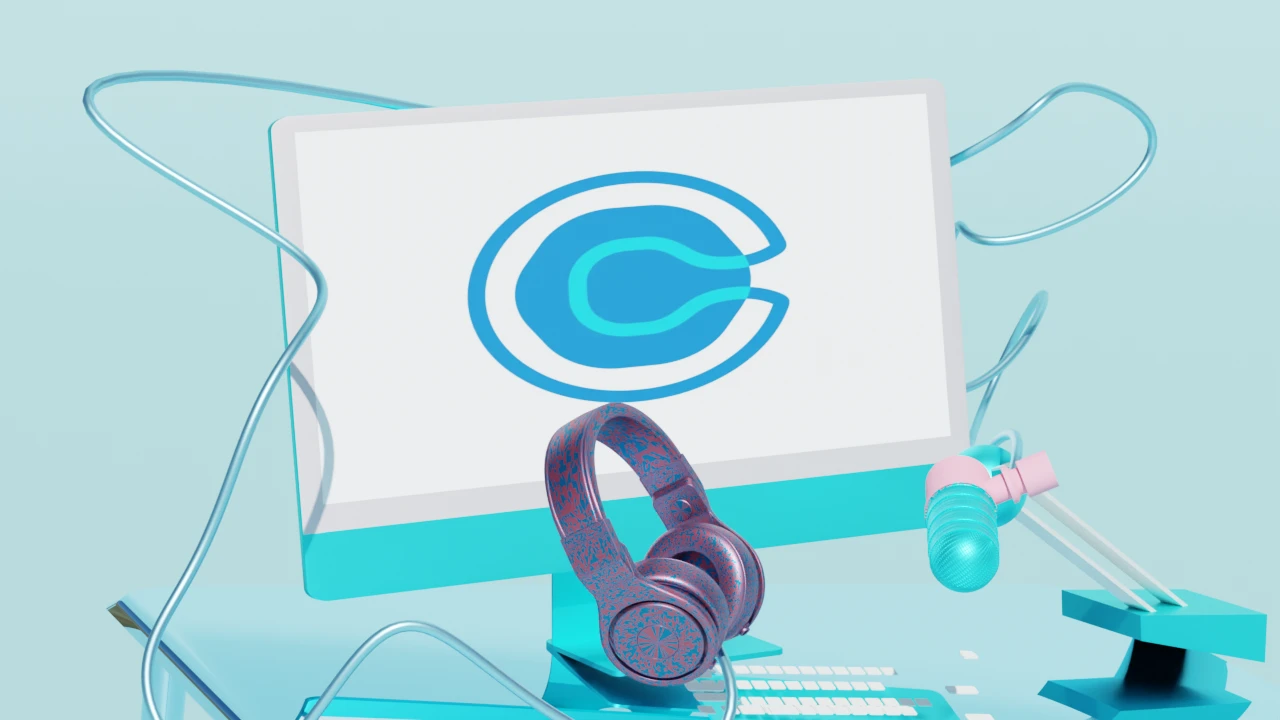Audacity is the unofficial first step in most audio journeys—it's where countless creators begin when they dive into sound production or start a podcast. Its appeal is straightforward: it costs nothing, everyone recommends it, and it handles the basics well enough to get you started.
But then reality sets in. The open-source nature of Audacity brings compatibility headaches, customer support is essentially non-existent, and updates arrive with glacial frequency. And that interface—it's not retro-cool, it's just plain stuck in the 90s, making every editing session feel like a time travel accident.
Eventually, every creator hits that wall where Audacity's limitations start holding back their work instead of enabling it. That's when it's time to graduate to something that matches your evolving skills and ambitions.
This article cuts through the noise to showcase genuinely better Audacity alternatives—tools with intuitive interfaces, powerful capabilities, and actual support when things go sideways. Whether you're crafting podcasts or mixing professional audio, you'll find options that respect both your workflow and your audience. From comprehensive DAWs (Digital Audio Workstations) to streamlined cloud solutions, we've sorted through the options so you don't have to.
Comprehensive feature comparison for Audacity alternatives
Comparing audio editors side by side can help you quickly spot the features that matter for your workflow. Free platforms like Ocenaudio and Audacity are often praised for their user-friendly design, making them popular choices among beginners. For those seeking professional-grade tools, paid software such as Adobe Audition or Logic Pro offers advanced noise reduction and robust multitrack editing features. By listing operating systems, pricing models, and unique capabilities in a comprehensive chart, you can quickly see which tool meets your budget and technical requirements. Whether you need plugins, built-in effects, or multi-track recording, aligning these features with your goals ensures you pick the right fit. Tools that offer multi-platform support, like Ocenaudio, can also streamline collaboration when you switch between Mac, Windows, or Linux.
What to look for in Audacity alternatives
When looking for alternatives to Audacity in 2025, it's important to consider the following factors: ease of use, advanced editing capabilities, compatibility with your operating system, pricing, and specific features for your audio editing needs.
- Ease of use: Look for software with a modern and intuitive interface that improves productivity.
- Features: Assess your needs, such as multitrack editing, advanced effects/plugins, scoring tools, and compatibility with standard file formats. Different alternatives excel in different areas.
- Compatibility: Ensure the software runs seamlessly on your operating system. Most audio editing tools are compatible with Windows and macOS.
- Pricing: While some free options are available, paid software often provides more features and better support.
- Support community: Consider the size of user communities, availability of extensive documentation, and customer support responsiveness.
You can find the perfect Audacity alternative by prioritizing your specific requirements, whether you're a podcaster, musician, or audio and video editor. The best audio editing software for you will depend on your experience level, budget, and the specific features you need.
Top 10 Audacity alternatives
1. Descript
2. GarageBand
3. Reaper
4. Logic Pro X
5. Pro Tools
7. Ardour
9. Alitu
10. Podcastle
1. Descript
 |
Descript is an AI-powered audio and video editing tool that simplifies the editing process for creators. It features transcription-based editing, which lets you make changes directly in the automatically generated transcript and seamlessly update the audio or video to match—making editing audio and video as easy as editing text. Unlike traditional audio editors, this approach eliminates the need to manipulate complex waveforms.
Descript also comes with Underlord, an AI assistant that can automatically remove filler words, edit for clarity, and even find good clips for social media promotion. Other AI features include Overdub to seamlessly correct mistakes using an AI voice instead of rerecording, and Studio Sound to remove background noise and enhance voices in a single click. These AI-powered tools make Descript particularly effective for creating professional-sounding podcasts without professional equipment.
It's ideal for podcasters, video creators, and professionals seeking an intuitive, feature-rich, and innovative editing solution. With its modern interface and powerful AI tools, Descript offers a significantly different approach to audio editing compared to traditional DAWs like Audacity.
Pros
- Efficient transcription-based editing
- AI-powered features for audio enhancement
- Collaboration tools for team projects
- Remote recording capabilities
Cons
- Not ideal for music production
- Needs a strong internet connection
Available on: Mac, Windows, and web
Price
- Free version
- Paid plans start at $12 per month when billed annually
2. GarageBand
 |
GarageBand is a free DAW that comes pre-installed on every Apple Mac. Its intuitive and modern design makes it easy to learn and use, making it an excellent choice for beginners. While GarageBand may lack some advanced features found in professional-grade software, its simple interface and robust capabilities make it a strong contender for podcasters who prioritize simplicity without sacrificing quality. Its ability to record various types of audio, from vocals to musical instruments, makes it particularly useful for those who create original music.
Pros
- Intuitive interface with a straightforward dashboard
- Supports up to 255 audio tracks for layering interviews, music, and effects
- Offers multitrack recording and virtual effects
- Comes with a sound library filled with bundled content
- Compatible with third-party plugins
Cons
- No mixing console view
- Primarily focused on music production, not podcasting
- Limited to Mac devices
Available on: Mac, iPhone, and iPad
Price: Free
3. Reaper
 |
Pros
- Highly customizable and affordable DAW
- Powerful audio and MIDI routing with multichannel support
- Unlimited audio tracks for extensive layering and mixing
- Efficient and fast to load, even on less powerful computers
- Compatible with Virtual Studio Technology (VST) plugins
Cons
- Steep learning curve due to its complex dashboard
- Unintuitive and uninviting interface
- Lacks built-in instruments and loops
- Limited to audio recording (no video capabilities)
Available on: Microsoft Windows (XP and newer), macOS (10.5 and newer), and Linux (currently in beta)
Price: $60 for a discounted license (personal use or businesses with yearly gross revenue under $20,000) and $225 for a commercial license
4. Logic Pro X
 |
Logic Pro X is a powerful DAW that's especially popular among musicians and music producers. Its advanced features and multitrack capabilities also make it a good choice for podcasters looking to enhance their audio quality. Despite its steeper learning curve and higher price, the one-time payment model and extensive features provide value for those committed to producing high-quality audio.
Pros
- Comprehensive suite of advanced features, including Dolby Atmos and Spatial Audio tools
- Unlimited audio tracks and a vast array of 58 built-in effects
- Comes with 72GB of bundled content, providing a rich library of sounds
- Logic Remote feature enables control from an iPad or iPhone
- Wide range of virtual instruments and plugins
- Great compatibility with third-party tools
Cons
- Steeper learning curve compared to other options
- Not available for Windows users
- High price tag
Available on: Mac only, requires macOS 11.0 or later
Price: $199.99 for new customers
5. Pro Tools
 |
Pro Tools is an industry-standard DAW with comprehensive audio editing and production tools. It's popular among professional podcasters for its reliability and powerful features, although the subscription-only pricing may not suit everyone.
Pros
- Preset specifically designed for podcasts
- Access to a wide selection of audio editing tools
- Multiple editing modes, including Shuffle mode, which is ideal for podcast editing
- Comes with 120 built-in effects to enhance audio quality
- Supports up to 256 audio tracks for extensive layering and mixing possibilities
- Fast 64-bit recording and mixing engine for handling demanding projects
Cons
- A steep learning curve, especially for beginners
- Subscription-only pricing model may not be suitable for everyone
- Free version has limitations on the number of audio, instrument, and MIDI tracks
Available on: Windows, macOS, and iPad (with varying feature sets)
Price
- Pro Tools Intro is free
- Paid plans start at $99 per year and extend up to $599 per annum.
6. Adobe Audition
 |
Adobe Audition is a professional audio workstation with advanced features for creating, mixing, and designing sound effects. It's popular among podcasters, video editors, and music producers due to its versatility.
The software's powerful audio restoration and noise reduction tools make it an excellent choice for podcasters recording in less-than-ideal environments. ts integration with Premiere Pro makes it a versatile option for video post-production. owever, the subscription-only pricing model and steep learning curve may be drawbacks for some users.
Pros
- Specialized audio restoration and noise reduction tools for cleaning up recordings
- Automatic loudness correction for consistent audio levels
- Seamless integration with Premiere Pro for audio mixing in video post-production
- Multitrack editing capabilities for working with multiple audio files simultaneously
- Wide support for different audio formats and third-party plugins
Cons
- Steep learning curve, especially for beginners
- No MIDI input support for recording audio with MIDI devices
- Only available through a subscription model, which may be costly for some users
- May be overkill for those who only require basic audio editing features
Available on: Windows and macOS
Price
Adobe Audition is available through a subscription:
- $22.99/month for Audition only
- $59.99/month for a bundle of all Adobe Creative Cloud apps (free trial available)
7. Ardour
 |
Ardour is an open-source DAW designed for recording, editing, mixing, and mastering audio projects. It may not have all the podcast-specific features, but its unlimited tracks and non-linear editing capabilities make it a solid choice for podcasters comfortable with an advanced audio production environment.
Pros
- Record, edit, mix, and master audio projects with unlimited tracks and busses
- Non-linear, non-destructive editing capabilities for flexible workflow
- Integrated Freesound.org search for easy access to thousands of royalty-free clips and jingles
- Source list feature for organizing and navigating large amounts of tape
- Multiple ripple modes for efficient editing of both simple and complex projects
Cons
- A steep learning curve, which may be challenging for beginners
- Not specifically designed for podcasting, lacking some optimized tools and workflows
- May require additional setup or plugins for podcast-specific features like noise reduction presets or distribution integration
Available on: Linux, macOS, and Windows
Price: Ardour is open-source software, which means it's free to use, modify, and distribute.
8. Waveform Free
 |
Waveform Free is a DAW with advanced features, making it an excellent choice for podcasters. It has an intuitive interface and comprehensive tools for recording, editing, and producing high-quality audio content. The combination of multitrack recording and dialogue editing capabilities makes it ideal for podcasters seeking an Audacity alternative.
Pros
- Unlimited audio, MIDI, and auxiliary tracks for complex projects
- Flexible export options to satisfy various client or streaming service requirements
- Cross-platform compatibility (macOS, Windows, and Linux)
- Supports popular plugin formats, including VST, VST 3, and AU
- Refreshed user interface with customizable light and dark themes
- Enhanced audio effects collection for improved performance and functionality
- Integrated utility plugins for common tasks and workflows
- Revamped browser for efficient searching, auditioning, and organizing assets
Cons
- Some advanced features, such as silence removal, real-time audio editing, colored waveforms, and extracting audio from video, are only available in the paid Pro version.
Available on:
- macOS 10.15 or Later 64-bit Intel or Apple Silicon
- Windows 10, 11 64-bit
- Ubuntu 20.04 64-bit
- Raspberry Pi 3 Model B 64-bit
Price
Waveform Free, as the name implies, is free. Waveform Pro starts at $199.
9. Alitu
 |
Alitu is an all-in-one podcast production suite for beginners. It offers a simplified approach to creating professional-sounding podcasts with tools for recording, editing, post-processing, and hosting. Although it may lack some advanced features typically available in DAWs, its simplicity makes it a strong option for new podcasters.
Pros
- User-friendly interface and automated features, ideal for beginners
- Web-based access from any computer (Mac or Windows)
- Built-in call recording feature for solo or group recordings
- Royalty-free music library and templates for enhanced production value
- Automated sound engineering and post-processing for polished results
- Integrated transcription tool for improved accessibility
- Podcast hosting and scheduling features for streamlined publishing
- Access to free podcast tutorials and the supportive PodCraft community
Cons
- Limited advanced editing tools compared to professional-grade software
- Lacks complex recording features and video recording capabilities
- Requires a stable internet connection for optimal performance
- Higher monthly cost compared to some alternatives
Available on: Web, accessible from any computer
Price
- $38 per month for indie podcasters (with a 7-day free trial)
10. Podcastle
 |
Podcastle is an AI-powered podcast creation platform that simplifies the recording and editing process, making podcasting accessible to both beginners and experienced content creators. Its intuitive interface and intelligent tools streamline the podcast production workflow, allowing users to focus on crafting engaging content. Features like automatic background noise removal, transcription services, and AI-generated voices speed up the production process and lower the technical barrier to entry, making Podcastle an attractive option for creating professional-sounding podcasts quickly and with minimal hassle.
Pros
- AI-powered tools for simplified recording and editing
- Automatic removal of background noise for clear audio
- Built-in transcription services for converting audio to text
- Text-to-speech feature with AI-generated voices
- Cloud-based recording for remote interviews
- Podcast hosting capabilities
- Simple interface and quick workflow
- Responsive customer support
Cons
- A monthly subscription is required to access the full feature set
- May lack advanced customization options for seasoned podcasters
- AI-generated voices might not suit all content types
Available on: Windows and Mac
Price
- Free
- The paid plans start at $3 per month
Free vs. paid audio editing options
Many creators wrestle with the decision between free and paid audio editing solutions. While free software like Audacity can handle essential tasks, its open-source framework often means limited support and sporadic updates. By comparison, paid platforms such as Adobe Audition usually include advanced noise reduction, extensive effects libraries, and dedicated customer service. However, certain free tools—like Ocenaudio—offer user-friendly interfaces and reliable performance, making them a strong choice for beginners on a budget. Ultimately, the choice depends on whether you prioritize immediate cost savings or advanced features for professional output. If you plan to scale your audio projects or require specialized mixing capabilities, investing in a paid platform might be worthwhile in the long run.
Upgrade your audio workflow with Descript
When it comes to the best Audacity alternatives, Descript is the tool podcasters need.
Its unique blend of AI-powered features, user-friendly interface, and comprehensive tools makes it the perfect choice for creating professional-sounding podcasts effortlessly.
Sign up for Descript today and take your podcast to the next level. Plans start at just $12 per month.
Frequently asked questions about Audacity alternatives
Is there a program better than Audacity?
Some top contenders that users have rated highly as alternatives to Audacity are Descript, Adobe Audition, GarageBand, and Logic Pro X. These options offer robust features and varying levels of complexity to cater to different needs.
Is Reaper better than Audacity?
Reaper is better than Audacity if you're an advanced user who wants greater control over recording, editing, and mixing audio. Audacity is better for beginners due to its simple interface and low (free!) price. For beginners who prefer a more intuitive and modern audio editor, Descript may be the best choice.
Is Audacity the best audio software?
Audacity is a popular choice for audio editing due to its powerful features, open-source nature, and the fact that it's free. However, we think Descript is the best audio software for podcasters and creators.
Which DAW has the easiest learning curve?
Many beginners find that Ocenaudio offers a highly intuitive interface ideal for those new to audio editing. It streamlines complex tasks into straightforward workflows so users can quickly master basic functions. Similarly, GarageBand is often praised for its user-friendly design, although it's only available on Apple platforms. Both options come with built-in effects and straightforward controls, reducing initial setup time for novices. Experts note these DAWs are well-documented, which further reduces the learning curve for first-time editors.
Is Audacity still relevant for pros?
Audacity remains a capable tool for many projects, but professionals often seek more advanced features such as real-time noise reduction and dedicated plugins. Many pros prefer premium DAWs like Adobe Audition or Logic Pro for robust performance on demanding tasks. For simpler endeavors, Audacity excels at basic editing and multi-track recording at zero cost. However, it doesn't always keep pace with the rapid development cycles and support options that come with paid platforms. As a result, many professionals view Audacity as a handy backup or quick-edit tool rather than a primary digital workstation.




































%20(1).JPG)





